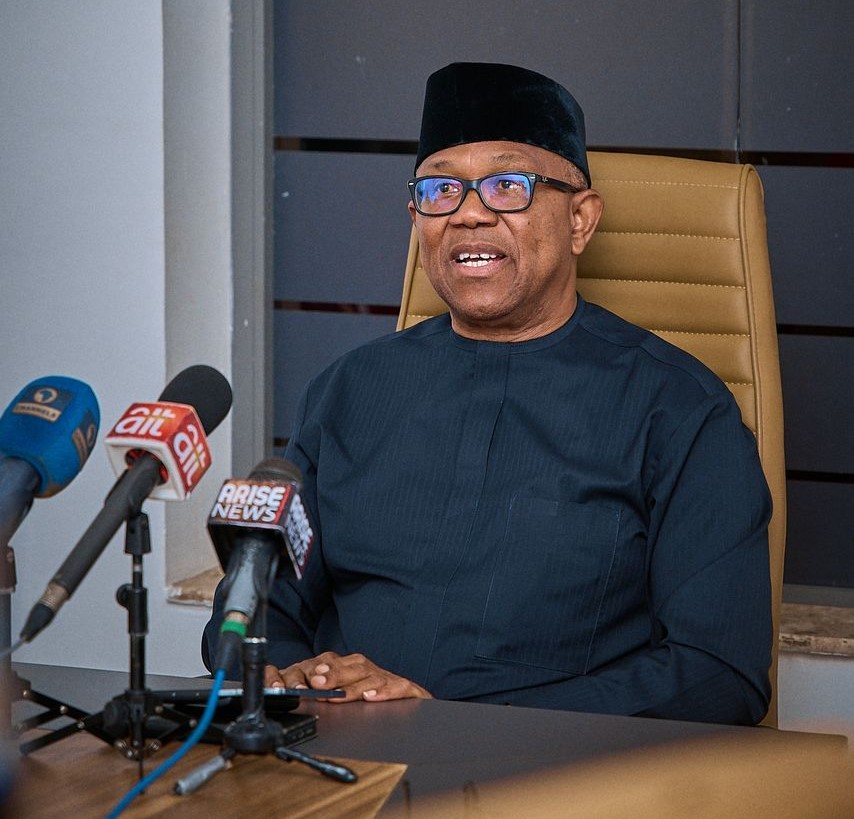- Safiu Kehinde
The 2023 Labour Party’s Presidential candidate, Peter Obi, has charged Nigerians to bring the old political system that enriches a few and impoverishes the masses to an end by embracing a new leadership defined by competence, compassion, and commitment.
Obi gave the charge during a Press Conference held in commemoration of Nigeria’s 65th Independence anniversary.
Reflecting on the country’s political journey since its independence on October 1st,1960, the former Anambra state governor held that Nigeria has always shown resilience despite tragic failures of leadership in guarding the country towards fulfilling its potential as Africa’s economic and political powerhouse.
He alleged that the country under the leadership of the All Progressives Congress (APC) had greatly diminished.
Obi claimed that Nigeria had become Africa’s largest economy and was primed to achieve middle-income status prior to the APC administration.
“On 1 October 1960, Nigeria gained independence to global acclaim as an emerging African economic and political power. Such was our potential that Time Magazine predicted the rise of a true African superpower that would lead the continent with pride.
“Our founding fathers fought for independence with confidence, passion, and determination to build a prosperous Nigeria that would stand alongside the world’s most advanced nations.
“Unfortunately, tragic failures of leadership derailed this vision. Yet despite these setbacks, Nigeria has always shown resilience.
“In 1999, we overcame military dictatorship and restored democracy, beginning a renewed journey toward prosperity, freedom, and justice.
“That journey helped us build Africa’s largest economy and strengthen democratic institutions.
“But over the last decade, under the APC’s incompetent, divisive, and corrupt leadership, Nigeria has been greatly diminished.
“By the end of 2007, our total debt was about N2.5 trillion, only 10 percent of GDP, after President Obasanjo’s government secured debt forgiveness of over 30 billion dollars.
“By 2014, Nigeria had become Africa’s largest economy and was primed to achieve middle-income status.
“In 2015, for the first time, a ruling party was defeated in a presidential election, marking another milestone for our democracy.” He said.
However, the arrival of the APC had according to him seen the country’s total debt stands at about N175 trillion, nearly 50 percent of Gross Domestic Product (GDP), without any improvement in productive sectors.
He accused the President Bola Tinubu-led administration of taxing struggling Nigerians with the country falling down the pecking order of Africa’s largest economy.
“Today, the picture is bleak. Our total debt stands at about N175 trillion, nearly 50 percent of GDP, without any improvement in productive sectors.
“Nigeria has fallen to the fourth-largest economy in Africa, behind South Africa, Egypt, and Algeria. Our democracy is now described as “undemocratic.”
“In just one year, this administration pushed over 15 million Nigerians into acute poverty. Today, more than 150 million Nigerians lack access to basic healthcare, education, water, and sanitation.
“This number grows daily under an APC government that pursues brutal revenue-driven policies while ignoring the welfare of its people.
“Nigeria now ranks among the lowest in the world on human development indicators. This government taxes struggling citizens and small businesses heavily, while indulging in extravagance. Billions are spent on new presidential jets, yachts, and luxury cars that cost more than the entire 2024 budget for primary healthcare.
“The Vice President’s residence was renovated at a cost of N25 billion, more than the combined capital budgets of six major federal university teaching hospitals.
Over N10 billion was allocated for car parks and canteens for the National Assembly, more than the capital budget of the Ministry of Science and Technology at a time when science is crucial to national growth. Meanwhile, Nigerians pay more for everything and receive less.
“Passports, permits, electricity, petrol, food, rent, and healthcare all cost more. Yet power supply remains unreliable, food insecurity deepens, and UNICEF and WFP project that 33 million Nigerians will face acute hunger in 2025.
“This government borrows recklessly, not for investment in productive infrastructure but for wasteful consumption. Insecurity has further crippled our economy.
“Nigerians now live in fear of travelling by road. Kidnapping has become rampant, with billions paid in ransom.
“Incompetence in security management has turned our country into one of the most terrorised and unsafe nations in the world.
“Cronyism, corruption, and disregard for the rule of law have scared away investors, while other African nations overtake us as preferred investment destinations.” Obi said.
The ex-Anambra governor charged Nigerians to learn from Asian countries like China, India, Indonesia, and Banggladesh, stressing that Nigeria too can rebound if we exit the path of incompetence and fiscal irresponsibility.
He reiterated that Nigeria has the resources, talent, and resilience to become an industrialised nation in record time.
This, according to him is however obtainable only if the citizens end the system where leaders feast while the people starve, and politics that enriches a few and impoverishes the many.
“The current administration’s failures must not lead us to despair. They should instead fuel our determination to rebuild. Nigeria has the resources, talent, and resilience to become an industrialised nation in record time.
“With the right leadership, we can defeat terrorism, restore security, and guarantee Nigerians safe communities where enterprise and social life can thrive.
“We must end a system where leaders feast while the people starve, where politics enriches a few and impoverishes the many.
“The old politics must end, and a new politics of prosperity for all must begin. Against all odds, we will return Nigeria to the path of prosperity and justice. We will not relent. We will not be discouraged.
“The mission is clear: Nigeria will rise again. I call on political leaders to reflect on the crises confronting our nation and recognise this as a moment to transcend personal interests.
“We must reject corruption, bigotry, and division. We must embrace a new Nigeria where leadership is defined by competence, compassion, and commitment.” He added.


